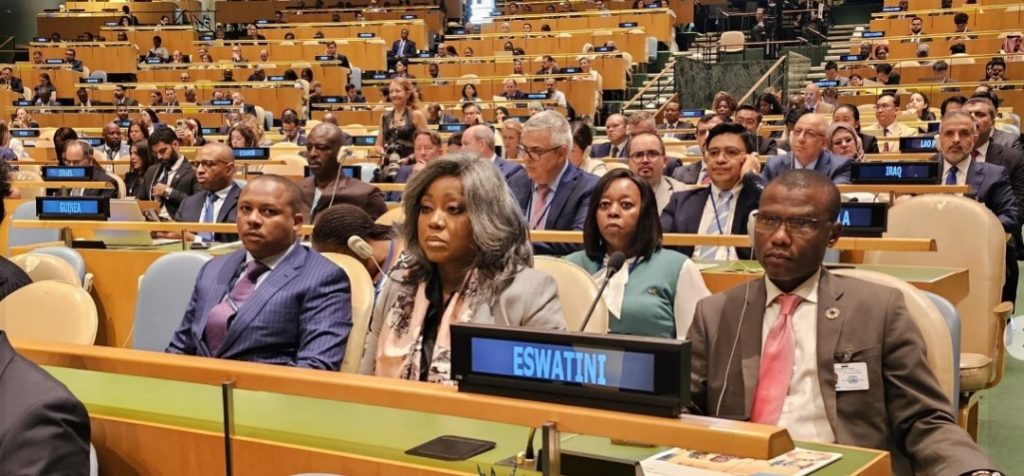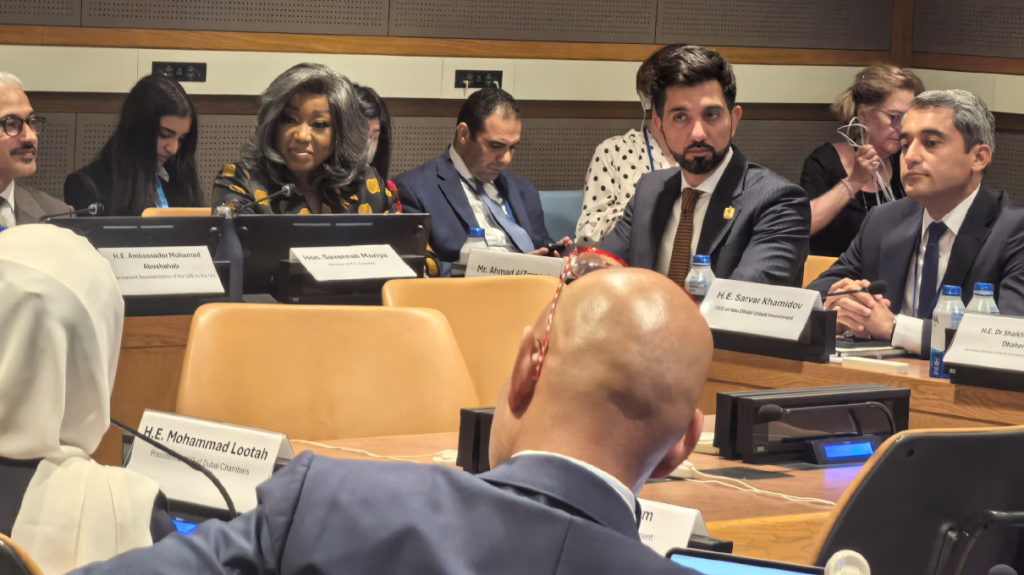
The Kingdom of Eswatini showcased its notable progress in Sustainable Development Goal 5 (SDG 5): Gender Equality and Women’s Empowerment during a high-level side event hosted by the United Arab Emirates (UAE) at the 2025 High-Level Political Forum (HLPF) on Sustainable Development at the United Nations Headquarters.
The Minister of Information, Communications and Technology (ICT), and Chairperson of the 5th Pillar of the United Nations Sustainable Development Goals (SDGs), Savannah Maziya, delivered an impactful keynote, emphasising Eswatini’s innovative, data-backed approach and highlighting that gender equality is a fundamental human right and a catalyst for sustainable development.
“Eswatini’s achievements demonstrate our dedication to empowering women and girls through bold reforms and strategic partnerships,” she stated. “Gender equality transforms lives, communities, and economies.”
Eswatini’s progress is supported by a multi-sectoral, data-informed strategy. The country has enacted key policies and legal frameworks, including the National Gender Policy (2023–2027) and the Sexual Offences and Domestic Violence Act (2018). A 2019 High Court ruling that abolished marital power has further strengthened women’s autonomy and legal protections.
As of February 2024, women now hold 21.6% of parliamentary seats, reflecting increased political representation and leadership inclusion.
The nation has also advanced in digital inclusion and STEM education through initiatives such as the Women in Science, Engineering, and Technology (WiSET) Strategy (2024–2029) and the Girls in ICT programme, supported by the Eswatini Communications Commission (ESCCOM).
A STEM mentorship scheme for girls, launched in February 2025, along with the onboarding of 108 girls under the Mission Shakti initiative, is equipping young women with vital skills for the future.
The Digital Eswatini initiative’s “Government in Your Hand” platform aims to revolutionise access to essential services through telemedicine, rural health hubs, and caregiver portals, reducing unpaid care burdens on women and fostering economic inclusion, aligning with SDG 5.4.
In a nod to climate-smart solutions, the Powering Gender Equality Project trained 50 rural women in clean energy technologies between 2023 and 2024, addressing both SDG 5 and SDG 7 (Affordable and Clean Energy).
Health remains a core element of Eswatini’s gender agenda. The National Cervical Cancer Elimination Plan (2025–2030), supported by WHO, has achieved 74% HPV vaccination coverage amongst eligible girls. This is complemented by digitised health systems and mobile screening services designed to expand access and early diagnosis.
In education, the kingdom is aligned with the African Union’s #AfricaEducatesHer campaign, launched during National Science Week, which promotes school retention for girls, shields them from early marriage, and nurtures leadership through mentorship and support.
Looking ahead, Eswatini will implement the She Powers Africa programme in partnership with the UAE. This initiative will train women aged 18–35 in AI, cybersecurity, STEM, and climate resilience, while also addressing online gender-based violence and encouraging women-led entrepreneurship.

Despite being classified in the middle performance category with an SDG Gender Index score of 55.2, Eswatini is targeting yearly improvements of 5 points to achieve gender equality by 2030.
The UAE, host of the side event, also highlighted its own gender equality model, noting women occupy 50% of Federal National Council seats and 6% of Cabinet positions. The UAE showcased global initiatives such as Her Highness Sheikha Fatima’s Women in Peace and Security Programme with UN Women, reaffirming its commitment to the 2030 Agenda.
Minister Maziya praised the support of international and regional partners, including the UAE, UNDP, UN Women, WHO, AUDA-NEPAD, and SADC Girls in ICT, in helping Eswatini expand its impact and accelerate transformation.
“Together, we are unlocking the potential of Africa’s women and girls,” she concluded. “Gender equality is both achievable and essential for sustainable progress.”
